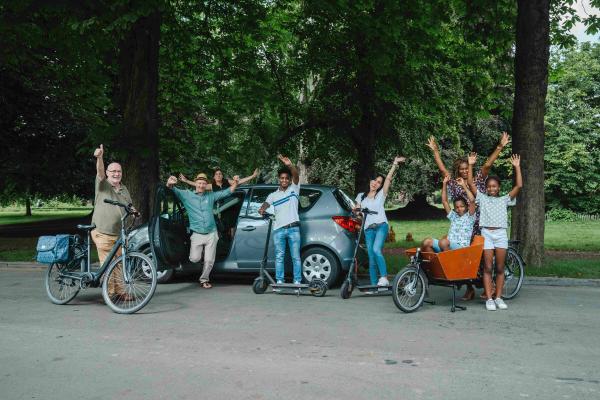Project summary
Due to urbanisation, transport demand in cities and regions in Europe is still growing. Although a modal shift is visible from private cars to more sustainable modes of transport, in absolute numbers car use still increases, leading to (at least) unchanged emissions and congestion. Above all, cars still occupy a vast amount of space in cities, affecting liveability. In medium and small cities and rural areas, public transport services are decreasing in quality and quantity leading to car dependency and potential transport poverty. Many cities and regions started to address this challenge by introducing policies focusing on stimulation of shared mobility and to facilitate pilots and large-scale uptake of shared mobility services as these provide interesting benefits: More travel options, lower car dependency, car ownership and car use, safer and more liveable streets, higher use of sustainable and healthy modes such as walking, cycling, public transport and reduction of transport related emissions.
However, many policy makers are struggling with finding the right policy tools and concrete actions to accelerate the growth of (new forms of) shared mobility.
The Shared Mobility Action Programmes Exchange (SMAPE) project aims to improve shared mobility policies. More specifically, the project will focus on aspects like shared mobility integration with public transport and Mobility as a Service, usage of data (dashboards) for monitoring and policy adjustments and data sharing, influence attitude and behaviour, optimising the mix of mobility modes, regulations, frameworks for public private partnerships and policy recommendations and contributions to Sustainable Urban Mobility Plans (SUMPs).
The SMAPE consortium consists of partners from Belgium, Germany, Norway, Greece, Italy, Slovenia and Romania and together they will improve 7 policy instruments that have a focus on shared mobility. Two of these instruments concern ERDF-programmes.
What will this project change
Shared mobility has been booming the past 3 years. Shared Mobility solutions can be seen as one of the solutions to create more liveable and greener cities. Many cities, transport operators and shared mobility providers implemented pilots to test these solutions. However, most of the pilots were detached from the general mobility system. Based on best practices, SMAPE will apply an integral approach to improve or draft shared mobility policies.
The benefits of shared mobility:
1. More travel options (car, e-cargobike, bike, e-bike, e-scooters and e-mopeds, ridesharing, public transport)
2. Lower car dependency and ownership
3. Safer and more liveable streets
4. Higher use of sustainable and healthy modes such as walking, cycling, public transport
5. Less car use
6. Reduction of transport related emissions
